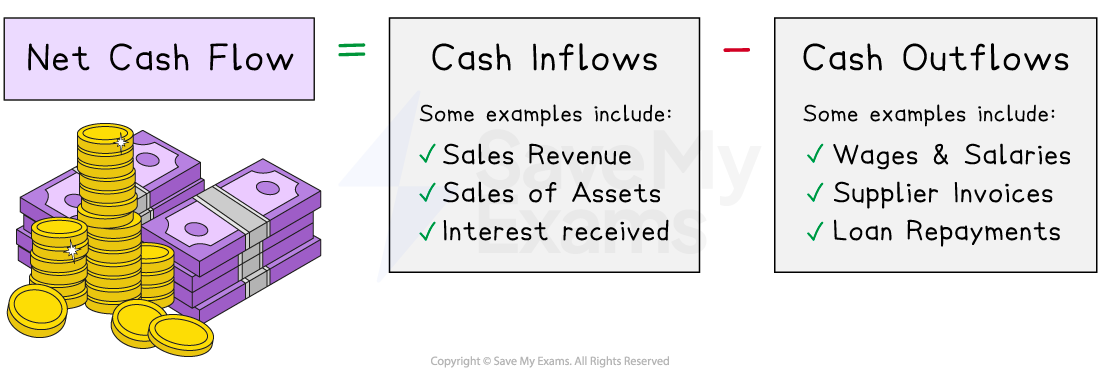The Purpose of Cash
- Cash is the 'lifeblood' of a business as without it a business will likely become insolvent relatively quickly
- It is the most liquid form of current asset in the form of notes and coins on a businesses premises as well as money deposited in the bank
- It is the most liquid form of current asset in the form of notes and coins on a businesses premises as well as money deposited in the bank
- Cash performs a variety of functions in a business
- It is used to cover regular operating expenses such as workers' pay, supplier invoices and overheads such as rent and utility bills
- It can also be used to meet unexpected expenses such as the replacement of broken equipment
- A new business may have to pay cash on purchase for all of its supplies until its suppliers trust them enough to provide trade credit
- A supplier may then give the business 30 or 60 days to pay what they owe
- Stock is received from a supplier
- The business sells its products and receives cash in the form of sales revenue
- At the end of the credit period, the supplier is paid
- A supplier may then give the business 30 or 60 days to pay what they owe


